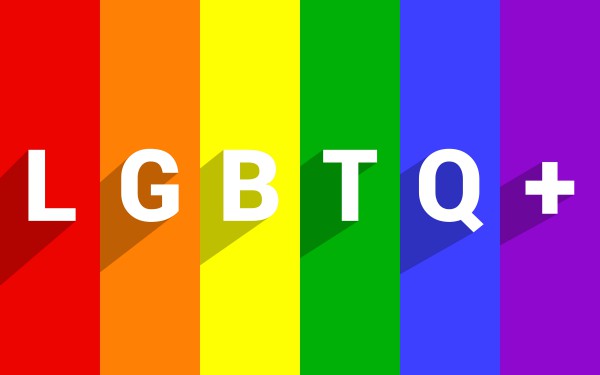The LGBTQ+ community, with its distinctive set of mental health challenges, is one such group that requires understanding, empathy, and specialized care. An LGBT Mental Health Counselor’s work is dedicated to uplifting and empowering individuals within this community. So, this blog aims to shed light on the importance of this specialized counseling approach and explores the role of an LGBT mental health counselor. We will also discuss a few tips to help you find the right counselor.
Contents
Who Is A LGBT Mental Health Counselor?
 An LGBT mental health counselor is a specialized professional within the field of mental health. They possess an in-depth understanding of the unique experiences, challenges, and mental health needs of individuals within the LGBTQ+ (Lesbian, Gay, Bisexual, Transgender, Queer, and others) community. These counselors have usually undergone specific training to offer culturally competent and affirming therapy for LGBTQ+ clients.
An LGBT mental health counselor is a specialized professional within the field of mental health. They possess an in-depth understanding of the unique experiences, challenges, and mental health needs of individuals within the LGBTQ+ (Lesbian, Gay, Bisexual, Transgender, Queer, and others) community. These counselors have usually undergone specific training to offer culturally competent and affirming therapy for LGBTQ+ clients.
Their role involves not only treating mental health issues such as depression, anxiety, and trauma but also providing support around issues specific to this community. They may also provide education and training for other professionals in the field to enhance cultural competence in working with LGBTQ+ clients.
When Should I See LGBT Mental Health Counselor?
The decision to see an LGBT mental health counselor can be prompted by various circumstances or needs, such as:
- Exploring Your Identity: If you’re questioning your sexual orientation or gender identity, an LGBT counselor can provide a supportive and understanding environment to explore these aspects of your identity.
- Coming Out: The process of coming out to family, friends, and colleagues can be a difficult and stressful time. A counselor can offer guidance and emotional support during this period.
- Facing Discrimination or Harassment: If you’re experiencing bias, discrimination, or harassment due to your sexual orientation or gender identity. Then, a counselor can help you cope with the emotional toll of these experiences and develop strategies for dealing with them.
- Transitioning: If you’re transgender and considering or undergoing a transition, a counselor can provide much-needed support and guidance during this time. Also, addressing any mental health concerns that may arise.
- Relationship Issues: If you’re having relationship difficulties related to your LGBTQ+ identity, such as conflicts over coming out or acceptance within the relationship, an LGBT counselor can provide specialized help.
- Low Self-Esteem or Negative Self-Image: If you’re struggling with feelings of self-doubt, shame, or negative self-perception related to your LGBTQ+ identity. Then, a counselor can help you develop a healthier, more positive self-image.
Remember, it’s okay to seek help even if you’re not in crisis. The aim of counseling is not just to help you manage difficulties but also to improve your overall well-being and help you lead a happier, more fulfilling life.
How Does An LGBT Mental Health Counselor Work?
 An LGBT mental health counselor works much like any other mental health professional. But with a particular focus on the specific issues and experiences of the LGBTQ+ community. Here is a general outline of how they might typically work:
An LGBT mental health counselor works much like any other mental health professional. But with a particular focus on the specific issues and experiences of the LGBTQ+ community. Here is a general outline of how they might typically work:
- Establishing a Safe Space
First and foremost, the counselor works to create a safe, non-judgmental, and supportive environment for their clients. This space allows individuals to express their feelings and experiences openly, without fear of discrimination or bias.
- Initial Assessment
They start with an initial assessment to understand the client’s current struggles, mental health status, background, and goals for therapy. The counselor pays particular attention to how the client’s sexual orientation or gender identity may be influencing their mental health or life situation.
- Developing a Treatment Plan
Based on the assessment, the counselor develops a personalized treatment plan. This plan addresses the client’s unique needs and goals, taking into account their LGBTQ+ identity.
- Providing Support and Skills
Throughout the therapeutic process, the counselor provides emotional support, helps the client develop coping skills, and assists with problem-solving. They help the client navigate issues such as coming out, transitioning, dealing with discrimination, and improving self-acceptance and self-esteem.
- Collaboration and Referrals
LGBT mental health counselors may also work in collaboration with other professionals, such as psychiatrists or social workers, to provide comprehensive care. They might also refer clients to supportive resources within the community, such as LGBTQ+ support groups.
- Advocacy
In addition to direct client work, many LGBT mental health counselors engage in advocacy, pushing for policy changes, social justice, and increased awareness around LGBTQ+ mental health issues.
The ultimate goal of an LGBT mental health counselor is to improve the mental health and overall well-being of their clients. And providing the support and tools they need to lead fulfilling, authentic lives.
What Are The Techniques Used In Session?
In sessions, an LGBT mental health counselor employs a variety of therapeutic techniques based on the client’s unique needs and the counselor’s therapeutic approach. Some common techniques used include:
Cognitive Behavioral Therapy (CBT)
This approach focuses on identifying and changing negative thought patterns that can lead to harmful behaviors or emotional distress. CBT can be especially helpful for clients dealing with anxiety, depression, or low self-esteem.
Affirmative Therapy
This approach validates the client’s LGBTQ+ identity, helps them navigate social challenges related to their sexual orientation or gender identity, and fosters self-acceptance and positive self-perception.
Mindfulness-Based Techniques
These techniques focus on helping clients stay present and engaged in the moment, which can reduce anxiety and stress and increase self-awareness. This can be particularly useful for clients who may be dealing with internalized homophobia or transphobia.
Dialectical Behavior Therapy (DBT)
This approach can be effective for clients dealing with self-harm, suicidal thoughts, or emotionally unstable personality disorder. DBT techniques teach clients skills in four key areas: mindfulness, distress tolerance, emotion regulation, and interpersonal effectiveness.
Narrative Therapy
This technique focuses on helping clients rewrite their life stories in a way that empowers them and helps them see themselves in a positive, resilient light, rather than being defined by their problems.
Family Systems Therapy
When working with adolescents or clients who are having difficulties with their families, this approach can be useful. It helps to address patterns of interaction within the family that are causing problems.
Psychoeducation
Educating clients about mental health issues, the impact of stigma and discrimination, and strategies for coping can be a powerful tool for fostering self-understanding and resilience.
Each of these techniques can be used alone or in combination depending on the client’s individual needs. And the therapist’s judgment about what will be most beneficial in the client’s specific context.
How To Find An LGBT Mental Health Counselor Near Me?
 Finding an LGBT mental health counselor in your area can be a crucial step toward getting the support you need. Here are some strategies to help you locate one:
Finding an LGBT mental health counselor in your area can be a crucial step toward getting the support you need. Here are some strategies to help you locate one:
1. MantraCare’s Therapist Directory
One of the most extensive resources available online, the directory allows you to filter your search by issues, such as LGBT, as well as by location. You can view the profiles of different therapists, read about their approach, and see their contact details.
2. LGBTQ+ Organizations
Local or national LGBTQ+ organizations often have directories of LGBTQ-friendly therapists or can give referrals. Examples include PFLAG, GLSEN, the Trevor Project, and the National Center for Transgender Equality.
3. Insurance Provider
If you have health insurance, check your provider’s website or call their customer service line to find out which therapists in your area accept your insurance. You can then do further research to see if these therapists have experience with LGBT issues.
4. Online Therapy Platforms
Many online therapy platforms, such as CoupleMantra or PrideMantra, allow you to specify the type of therapist you’re looking for and can match you with a professional experienced in LGBTQ+ mental health.
5. Word of Mouth
Ask friends, family, or members of the local LGBTQ+ community if they can recommend a good LGBT mental health counselor.
6. Professional Associations
Many professional organizations, such as the American Psychological Association or the Association for LGBT Issues in Counseling, have directories of providers who specialize in LGBTQ+ mental health.
When choosing a counselor, it’s important to find someone you feel comfortable with. Don’t be afraid to ask about their experience working with LGBT clients, their approach to therapy, and any other questions you might have. Remember, the goal is to find someone who can provide the supportive, affirming care that you deserve.
Conclusion
Navigating the mental health journey can be daunting. But for individuals within the LGBTQ+ community, this journey carries additional layers of complexity due to unique challenges related to identity, acceptance, and societal biases. An LGBT mental health counselor can provide a vital beacon of support, offering specialized care tailored to address these specific needs.
Their role in fostering self-acceptance, managing mental health issues, and advocating for equality is paramount. Finding the right counselor can be transformative. Eventually, leading to improved mental health outcomes and the ability to live authentically. Remember, seeking help is a sign of strength!
Life may sometimes be challenging for people from LGBTQ community, but Online LGBTQ Counseling can help. Get experienced LGBTQ therapists at PrideMantra: Book a trial LGBTQ therapy session


